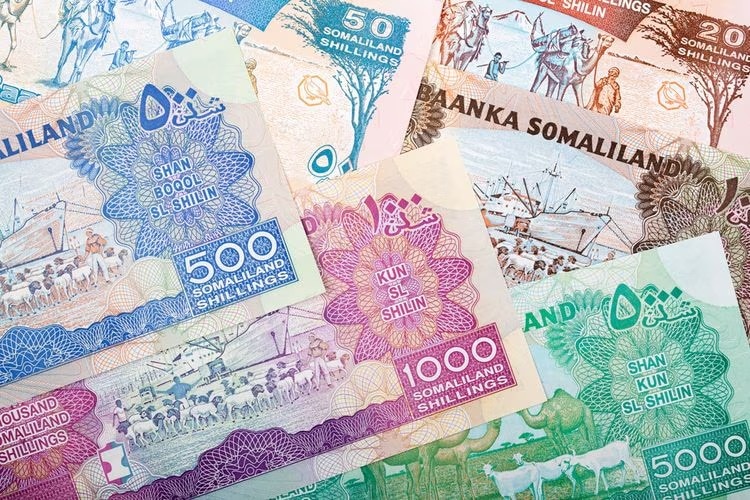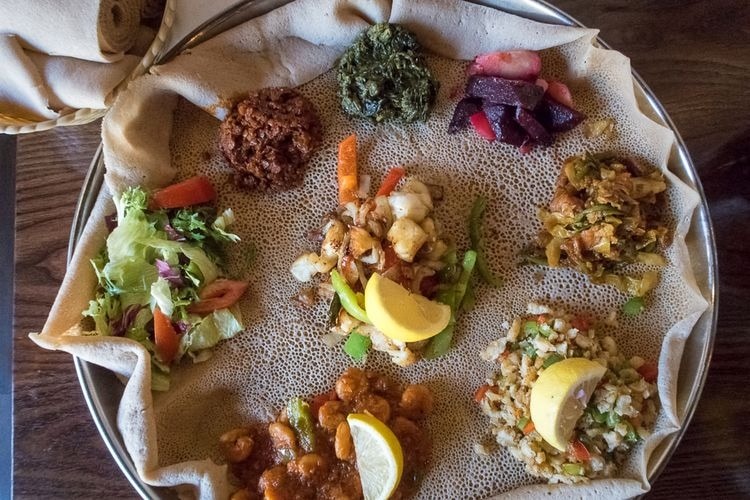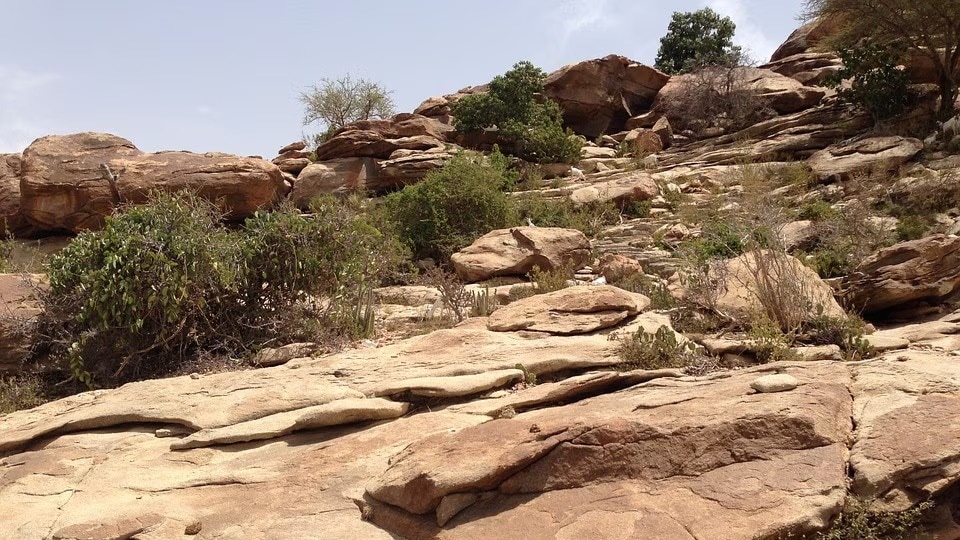Somalia Travel Tips and Information
Official Name
Federal Republic of Somalia
Capital
Mogadishu
Population
Country Code
19.2 million
SO
Country Code (international calls)
+252
The flight time to Somalia is approximately ---- hours. Check the climate, currency, religion, manners, other information of Somalia below. Wishing you pleasant travels to Somalia.
Somalia is located on the Horn of Africa and is bordered by Kenya, the Indian Ocean, the Gulf of Aden, Djibouti and Ethiopia.
Local Climate / Weather
Somalia's climate, characterized by an arid to semi-arid environment, experiences high temperatures year-round, with distinct wet and dry seasons. This East African nation primarily has two rainy seasons, the "Gu" season from April to June and the "Dayr" season from October to December. During these months, short but intense rains bring relief to the otherwise dry landscape, particularly in the north and central regions. The hottest period is between February and April, when temperatures can exceed 40°C in some areas, while the coastal regions remain a bit cooler due to sea breezes. Seasonal Travel Advice For all travelers, the best time to visit Somalia is during the cooler months, from December to February, when temperatures are more moderate, making it ideal for sightseeing and outdoor activities. The "Dayr" rainy season is short, so late October through early December can also be pleasant, although some regions might experience brief rain showers. Travelers should be prepared for high temperatures throughout most of the year and take precautions such as wearing light clothing, staying hydrated, and avoiding midday heat during hotter months. Major Events and Festivals Somalia's festivals and events reflect its cultural heritage and Islamic traditions. Eid al-Fitr and Eid al-Adha are celebrated with joy, communal prayers, and feasting, marking important religious occasions. Somali Independence Day on July 1 is a significant national event, commemorated with parades, cultural displays, and patriotic activities, particularly in Mogadishu. These events offer all travelers a glimpse into Somalia’s culture and traditions, making them excellent times to plan a visit for a deeper cultural experience.
Currency & Tipping
Currency
When traveling to Somalia, all visitors should familiarize themselves with the local currency, the Somali Shilling (SOS). While the U.S. Dollar is widely accepted in many establishments, especially in urban areas, it’s advisable to carry some Somali Shillings for small transactions and in rural regions. Travelers can exchange currency at authorized banks or exchange counters, but note that credit card usage is limited, so cash is preferred for most purchases.
Tipping
Regarding tipping, it’s not a customary practice in Somalia, but it is appreciated in certain situations. For instance, in higher-end hotels or restaurants, leaving a small tip (around 5-10% of the bill) is a courteous gesture for good service. Additionally, for services like tour guides or drivers, offering a modest gratuity is seen as a sign of appreciation, though not expected.
Useful Travel Information

Voltage & Electrical Outlets
Somalia operates on a 220V power supply, with a frequency of 50Hz. However, travelers should note that Somalia uses type C and F plug sockets. To charge devices or use electronics without hassle, it’s best to bring a universal travel adapter, especially if you plan to use several devices.

Internet Connectivity
In Somalia, internet services are widely available in major cities and can be accessed through various local providers. Some of the prominent carriers include Hormuud Telecom and Somnet, both offering a range of internet plans, including mobile data and broadband. Travelers can purchase prepaid SIM cards from these providers, often available at the airport or local stores, to stay connected while exploring. For the best coverage, especially in urban areas, Hormuud is a recommended choice. Remember to bring an unlocked phone for easy access to local networks.
Water for Consumption (Drinking Water)
When it comes to drinking water, caution is advised in Somalia. Tap water is generally not considered safe for drinking, and it’s recommended to stick to bottled or filtered water throughout your stay. Most hotels and restaurants in tourist areas provide bottled water, and it is also available in supermarkets and convenience stores. If you're visiting rural areas, carrying sufficient bottled water is essential to avoid dehydration or health issues.
Culture, Religion & Social Etiquette
Culture
Somalia boasts a rich, nomadic heritage that deeply influences its cultural expressions, from hospitality to traditional attire and folk music. The nomadic lifestyle has shaped Somali society to value generosity and a strong sense of community, with practices like storytelling, poetry, and dance central to its social gatherings. Traditional clothing, such as the macawis for men and guntiino for women, reflects both the climate and cultural aesthetics of the region, making for a modest yet vibrant style. For all visitors, witnessing Somali celebrations and ceremonies offers a glimpse into these unique customs, including the dhaanto, a popular folk dance that celebrates both social and national unity.
Religion
Islam is the predominant religion in Somalia, with nearly the entire population adhering to Sunni Islam. This deeply influences the country's laws, daily routines, and social practices. The five daily prayers are a staple in Somali life, and during the holy month of Ramadan, the atmosphere becomes even more focused on faith and family, with special fasting practices and gatherings. ALl travelers should be respectful of Islamic customs, dressing modestly, and avoiding public displays of affection, especially around mosques and during prayer times.
Social Etiquette
Somalis are known for their hospitality, often welcoming guests with coffee or tea and a traditional greeting, such as As-salamu alaykum (Peace be upon you). All travelers can mirror this hospitality by expressing gratitude when receiving gestures of kindness. A handshake is a common greeting but may vary between men and women, as Somali culture is generally conservative, especially around gender interactions. It is also customary to remove shoes before entering a Somali home and to avoid eating with the left hand, as this hand is considered unclean. Respect for elders and attention to etiquette around dining and greetings will make a positive impression on Somali hosts.
Food Culture
Somalia offers a unique and flavorful food culture, drawing influences from East Africa, the Middle East, and the Indian subcontinent, which alltravelers may find intriguing and delightful. Traditional Somali cuisine often features staple ingredients like rice, pasta, lamb, goat, and fish, accompanied by an array of spices that bring warmth and depth to each dish. One must-try in Somalia is canjeero, a local flatbread, often enjoyed with a variety of toppings, from savory stews to honey. Rice dishes, like bariis iskukaris, a spiced rice dish often paired with meat or fish, are also central to Somali meals. Street food in Somalia presents a vibrant scene where all travelers can experience the country's flavors in an affordable and casual way. Sambusa, a fried pastry filled with spiced meat or vegetables, is a popular snack that mirrors travelers empanadas in its savory appeal and crispy texture. In addition, Somali street vendors often serve grilled meats, such as lamb kebabs, marinated with a blend of spices that provides a rich taste similar to travelers inihaw. For those looking to dine in local restaurants, there are many options in cities like Mogadishu and Hargeisa where all travelers can experience authentic Somali hospitality. Popular eateries offer traditional dishes, often prepared with local spices and ingredients, and may even have an array of seafood options for those who appreciate fresh ocean flavors. Some well-known local restaurants worth exploring include Village Restaurant in Mogadishu, which serves traditional meals in a cozy setting, and Mukhtar Restaurant in Hargeisa, known for its deliciously seasoned kebabs and seafood. All travelers can also enjoy a unique dining experience with traditional Somali tea, shaah, flavored with cardamom, cloves, and cinnamon—ideal for a comforting end to a flavorful meal.
Major Tourist Attractions & UNESCO World Heritage Sites
Major Tourist Attractions
Because of the relatively stable security in northern Somaliland, many tourist destinations are located within Somaliland. Lars Geel, with its cave murals, and Berbera Beach, with its beautiful sea view, are major tourist attractions.
UNESCO World Heritage Sites
There are no World Heritage Sites in Somalia.
Voice of Travelers to Somalia
I booked a first-class ticket to Somalia. Great service
When I booked a ticket to Somalia, I never thought that I would experience first class treatment. First-class tickets were cheap to Somalia. My ticket to Somalia included amazing food and drinks. The first-class cabin was well designed and beautifully designed. I will definitely book tickets with Turkish Airlines when travelling to Somalia again.
Good flight with an Ethiopian Airlines ticket to Somalia
When flying to Somalia, my experience was unique. I was able to purchase a cheap ticket and the aircraft was new. Ethiopian Airlines have ordered a new fleet of aircrafts. Somalia is a very enjoyable place to explore. I will return to Somalia next year and plan to book my ticket soon. You will not regret visiting Somalia and must go! The people, food and attractions are awesome.
Why is travelling to Somalia such a unique experience?
Somalia is filled with natural beauty. There are a variety of tourist destinations for travellers who have booked tickets to Somalia. Historical locations and museums are sure to amaze visitors. Also, there are other destinations such as beaches and natural caves. While Somalia’s landmarks are complicated by the fact that some of them are out of bounds during periods of violence and conflict, there are certainly some attractions which should not be missed. Somalia boasts many natural landmarks, including national parks and mountains in which locals place a great deal of pride. Most of the attractions concern the region’s cultural and political history, which are interesting considering the current instability. Tickets to visit attractions are cheap. In Somalia, travelling by air is convenient and tickets can be booked by local ticket agents. In Laas Geel, cave paintings can be found. Lag Badana-Bushbush National Park is a lush green park and very beautiful. Tourists can also purchase a ticket to visit Sa'ad ad-Din Island in Somalia.




